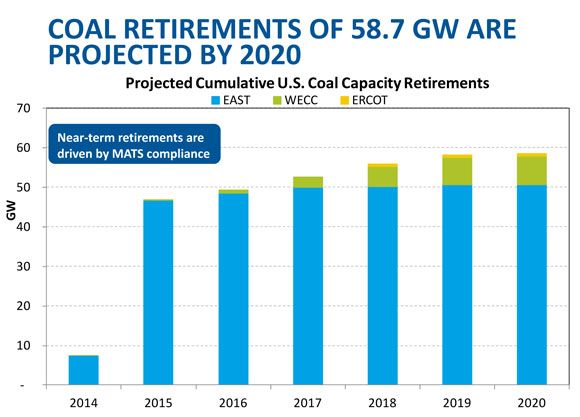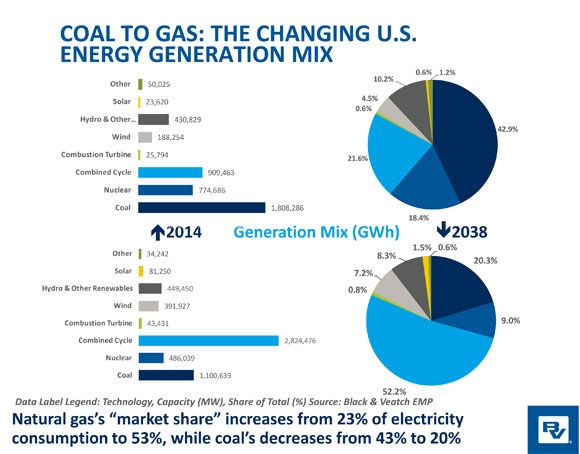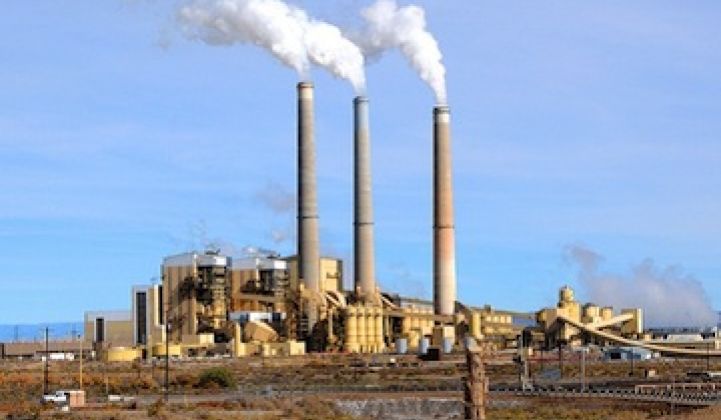When President Obama announced his proposal to limit carbon emissions on existing power plants, many environmentalists and clean energy supporters cheered. But the plan will take years, at the least, to put into action, and perhaps longer -- if the power industry has its way.
But other moves afoot, primarily EPA’s mercury and air toxic standards (MATS) rule and the cross-state air pollution rule, will see a substantial amount of coal go the way of the dodo, even if the rules are being contested by the coal industry.
A mid-year report on the energy market by Black & Veatch forecasts that 58.7 gigawatts of coal will be retired by 2020. The bulk of the retirements will actually come in the next two years in the eastern portion of the U.S.

The projection does not take into account President Obama’s most recent calls for limiting greenhouse gas emissions, which could make the retirement figure go even higher.
It will still take decades for coal to be dethroned in the U.S., but Black & Veatch projects that by 2038, coal-fired power plants will only make up 12.5 percent of power generation capacity, with combined cycle taking the lion’s share of generation at 40 percent. “Coal has a myriad of challenges right now,” said Ann Donnelly, director of Fuels for Black & Veatch's management consulting division.
When Black & Veatch assessed the fuels by market share of electricity consumption, the move away from coal becomes starker. By 2038, the natural gas market share of electricity consumption jumps to 56 percent, while coal drops by half to 21 percent. According to plans from regional grid operators, gas will be the clear replacement, but renewables and demand response will also get a piece of the pie.

*Editor's note: The second graph has been replaced due to an error by Black & Veatch. The company said, "Thank you to the astute readers of Greentech Media. After reviewing their comments we noted that the slide containing the forward looking wind projection was in error. This has been corrected in the revised graphic and we apologize for the oversight."



